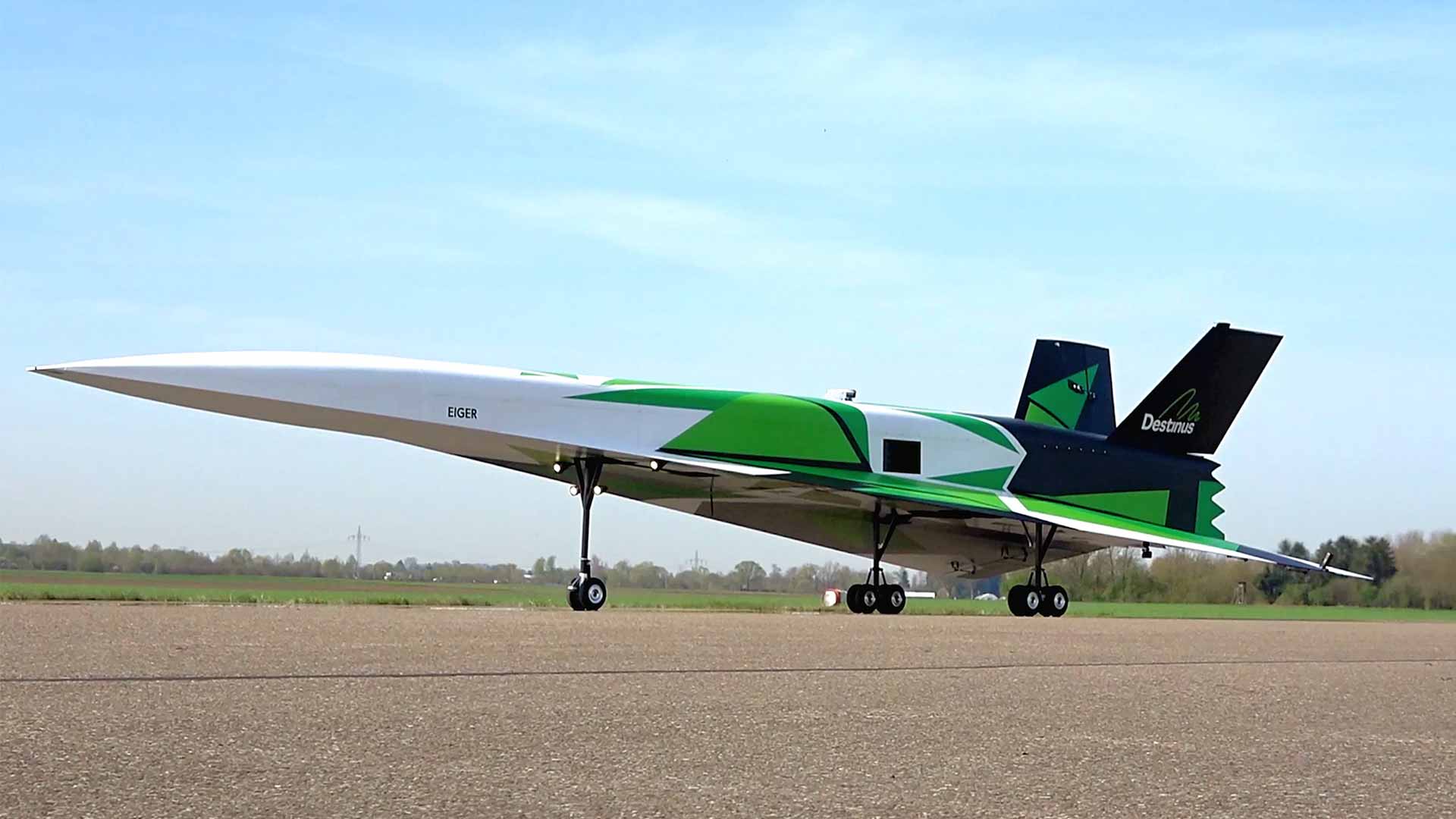Future of Flight is Hydrogen?
I stay credulous when it comes to bold claims made by brand new startups. They’re there to drum up funding, and the best way to do that is to find themselves in headlines like this one. With that said Swiss startup Destinus has been hitting some milestones hard and fast and it’s gotten me pondering the future of flight.
Destinus wants to create long range hypersonic flight that could get you to the opposite side of the planet in as little as 3 or 4 hours at 5 times the speed of sound. It’s been tried by a lot of people before, but I guess nobody likes sonic booms blowing out all their windows. What a shame.
Starting in 2021 Destinus has already done two successful prototype test flights with a third on the way testing hydrogen powered flight. Their R&D strategy is to create smaller unmanned models first, and once the basics are in place, scale up to a size appropriate for commercial travel.
Their dream is to get their autonomous plane called Jungfrau up 60km into the mesosphere going around mach 15, and then gliding back down till they land at their target.
“We are currently testing a gaseous hydrogen post-combustion jet engine (afterburner) while working to advance other engine technologies using cryogenic fuels such as liquid hydrogen. These technologies will undergo extensive ground testing over the coming year and be integrated onboard our next supersonic prototype, Destinus-3, in 2024,” states Destinus.
Hydrogen based flight is an industry in its infancy. Airbus isn’t planning on having anything off the ground using the technology till 2026. The plucky startup Universal Hydrogen says they successfully did a flight with a 40 seat ATR 72 partially using Hydrogen power to get off the ground at the beginning of the year. One of the plane’s turbine engines was replaced with Universal Hydrogen’s fuel cell-electric, megawatt-class powertrain.
ZeroAvia has raised $140 million in funding and also did test flights in the UK with a 19 seater. Half its engines were electric and hydrogen powered while the other half were ol’ reliables.
“Hydrogen aircraft could enter the market in the 2030s and scale up through 2050,” McKinsey & Company forecasted. “When they could account for roughly a third of aviation’s energy demand. With current aircraft designs, hydrogen aircraft could be range limited to up to 2,500 kilometres.”
Hydrogen power is getting a lot of capital investments at the moment because it promises zero emission travel. The only thing it’d leave in its wake is steam ideally (CHEMTRAILS??). It brings its own challenges though, and new plane designs are going to be required to make it viable. Chucking a bunch of hydrogen into a wetwing isn’t going to cut it. Its energy density is also 3.7 times lower than liquid fuels, probably making it better suited for short haul flights.
The equivalent of 14% of the world’s energy was burned in jet fuel. But nobody is expecting a jump overnight over to Hydrogen.
Meridian Energy Chief Executive Neal Barclay wants to be at the forefront of this demand. “Developing a hydrogen economy based on large-scale production in Southland could deliver significant decarbonisation, economic and energy independence benefits for New Zealand.”
“Our renewable energy gives us a valuable head start and competitive edge as markets for green hydrogen develop. Early, large-scale production will allow us to build a domestic hydrogen supply chain and kickstart demand around the country.”
There’s the potential for New Zealand to be a key player in green energy production, hopefully it’s something we can be well positioned for by the time engineers have figured out sustainable ways to fly with the stuff.

